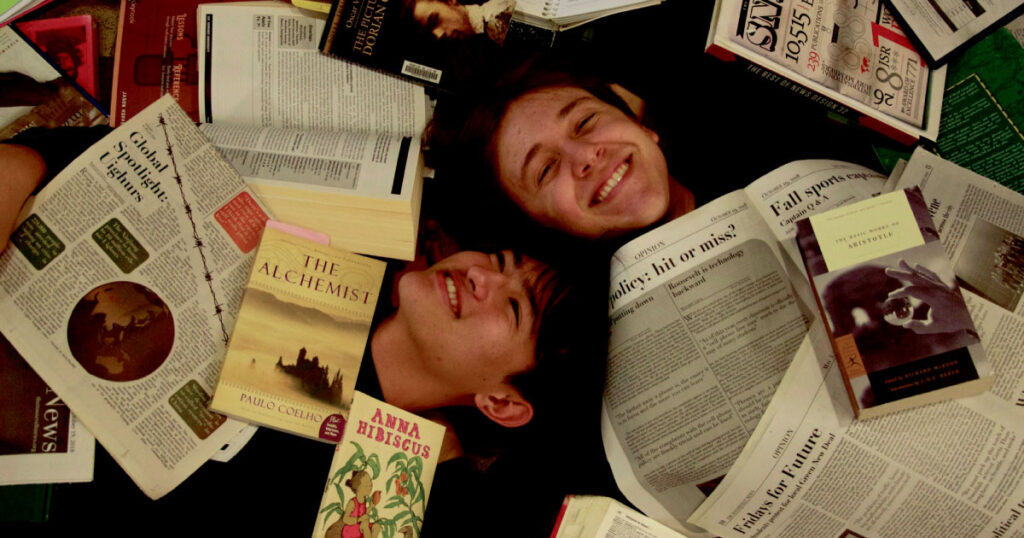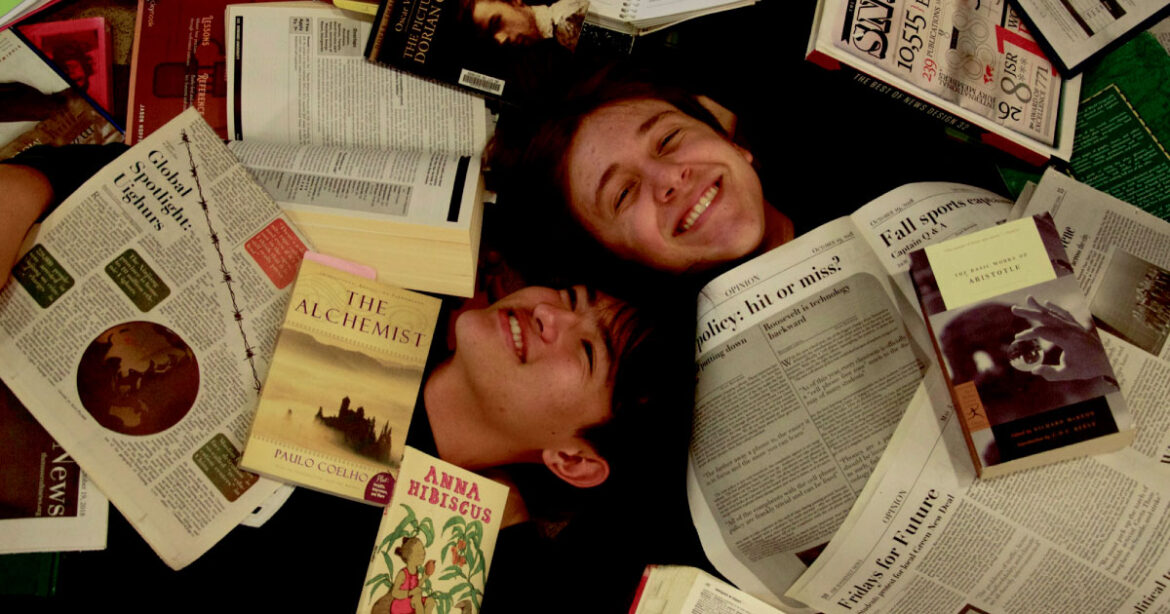A closer look into assigned reading and what Roosevelt teachers are doing to prevent students from skimming books.

From literary essays to oral presentations, language arts classes ask students to dive deeper into the meanings of books they’re assigned in class. However, reading those books isn’t always easy.
With already stuffed schedules, do students truly read the pages they’re assigned?
Roosevelt Reading Club president Chloe Johnson said, “It [can be] a challenge, being a slow reader and … trying to get the work done.”
A survey by The Roosevelt News of 69 Roosevelt High School students showed nearly 80% of the students surveyed read only occasionally outside of school. Just over 7% of them read daily.
As to why this is, Johnson said, “Phones have become more prevalent in our lives as teenagers. And especially with apps like TikTok and Instagram, I think people find it easier, and also just more enjoyable [than] reading.”
Thus, teachers have come up with creative ways to boost student involvement with assigned books.
“Teaching is an ongoing experiment,” said Roosevelt language arts teacher Amy Noji. One such experiment included how she “broke up the books into eight sections [and had] a discussion twice a week.”
Fellow Roosevelt language arts teacher Adam Karl makes sure students are reading the books with frequent “three-question short little quizzes.” In his classes, books “stay or go based on whether they work for the curriculum or whether the students like them.”
Some favorite books among students surveyed included: “Maus” by Art Spiegelman, “In a Grove” by Ryunosuke Akutagawa, “Macbeth” by William Shakespeare, and “Into the Wild” by Jon Krakauer.
Roosevelt language arts teachers Carolyn Kenney Hall and David Grosskopf said they can often tell through class discussions how well their students are reading.
Grosskopf said, “The biggest way to kill a discussion is if students aren’t reading.” Kenney Hall added that students who haven’t read the books “don’t know what to say in class discussion[s], don’t participate, [or] write random, very general stuff in their essays.”
Reading in class has also increased and was mentioned by all four teachers. Audiobooks, reading out loud, and silent reading are used across the board. Grosskopf said that since the pandemic, he has “more class time now for all … kinds of work, including reading.”
Current events affect assigned books as well. For example, Kenney Hall said “Grosskopf and I decided not to teach ‘Bastard out of Carolina’ [this year], because … it deals with the sexual abuse. … It’s been particularly hard on students.”
Despite this, she goes on to mention that it is “the book that students overwhelmingly found memorable and powerful.”
As the year continues and reading assignments keep coming, teaching language arts classes — and ensuring that students do the assigned reading — will likely continue to be an ongoing experiment.
Follow The Roosevelt News on Instagram @therhsnews. Questions, comments, or concerns? Contact the Editorial Board at therooseveltnews@gmail.com.
Your voice matters. Share your thoughts and experiences in the comment box below.



